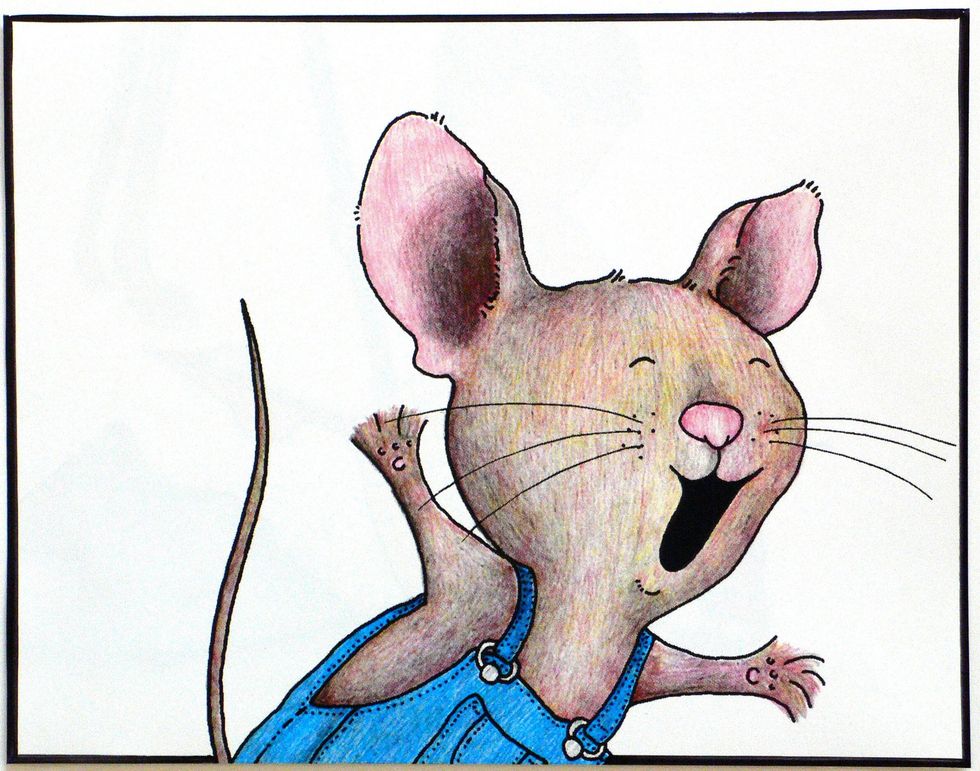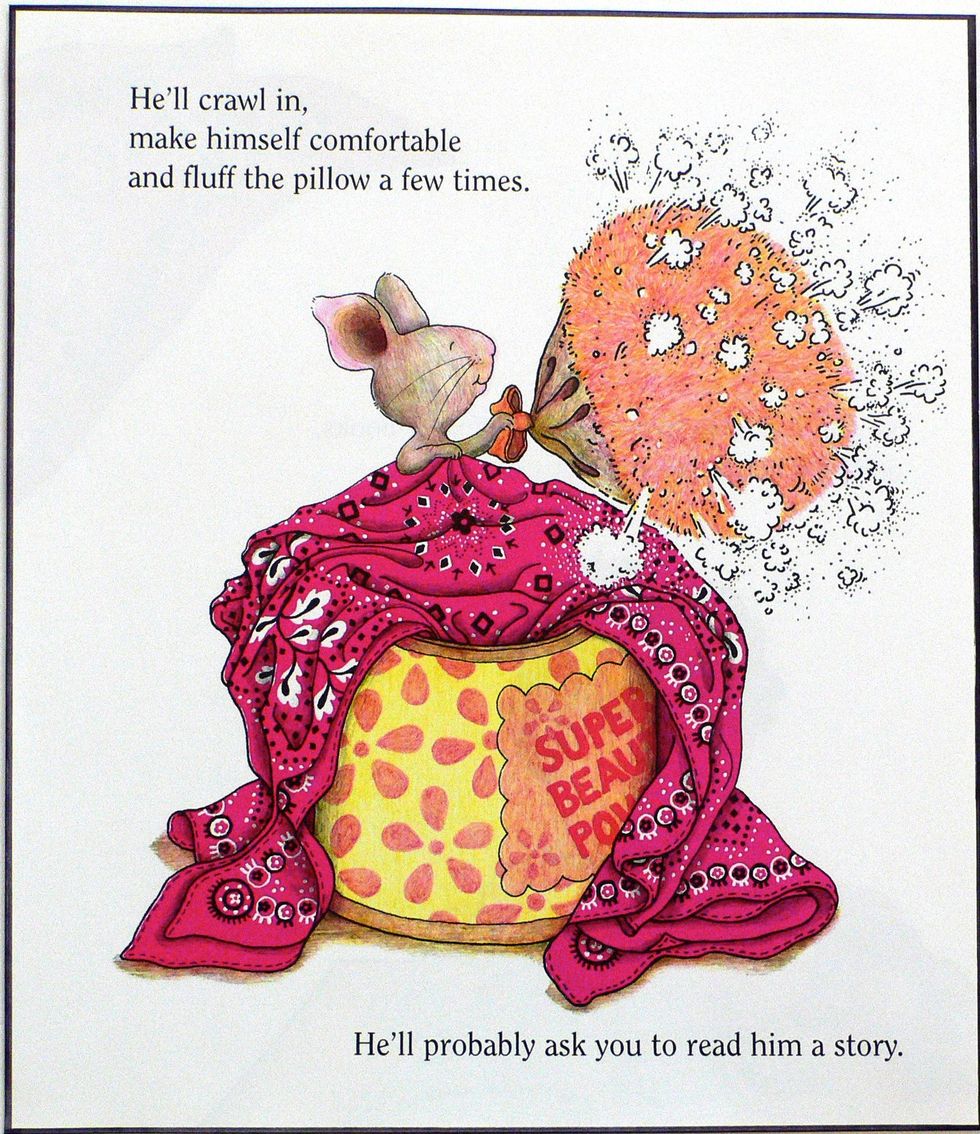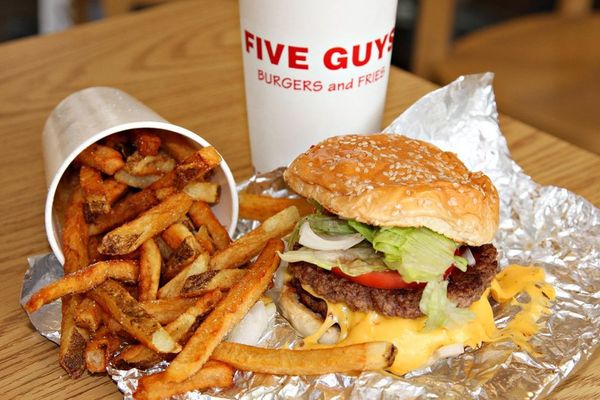AOL BUILD, alongside mediator Donna Freydkin, recently welcomed CNN news anchor Anderson Cooper and Academy Award-nominated director Liz Garbus to discuss their recent HBO documentary, "Nothing Left Unsaid: Gloria Vanderbilt and Anderson Cooper." The film explores the life of famed heiress Gloria Vanderbilt and takes on an intimate approach to unearthing the person behind the famous name. "I find that her life and the person that she is is far more interesting than whatever the public persona of her may be," Cooper says. "For me the motivation was largely to show people who my mom really is. People know the name Gloria Vanderbilt, but her actual story, what she actually lived through, the many different lives that she’s had, is something that I think hadn’t really been portrayed at all."
Photo by Melissa Guerrero
The documentary features archival footage and never-before-seen home movies that intimately paint the image of a woman very few have seen. When Cooper first approached his mother with the idea, he told her that he was not interested in seeing her "public face." He said to her, "I just want you as I know you when I come over at the house and I see you. That’s when I think you’re at your most beautiful and at your most interesting."
"We spent a lot of time with Gloria in her studio," says Garbus who also directed the Oscar-nominated Netflix doc "What Happened, Miss Simone?" "...That process of painting was really very much her own process of telling her story, visually."
Garbus had a lot to work with in terms of material, considering Vanderbilt archived her own life and created a treasure trove of narratives hidden beneath photographs, newspaper clippings, letters, and even cereal boxes enclosed in a storage unit. Cooper himself wandered in and out of it for the past 30 years:
"For a while I was trekking out to the storage unit in Queens that the Seven Santini Brothers have," Cooper says, "and then I finally moved it all to my house. You would open these boxes and one box would be a crystal chandelier or a box of letters from Howard Hughes or Frank Sinatra to my mom. Then you would open up another box and it would be cornflakes from 1953 that have been packed away in some some move and my mom has spent god knows how many thousands of dollars paying to store for the last 50-something years."
They shot the film over the course of two years. In the process, Cooper not only was able to see his mother with "fresh eyes," but the experience further strengthened their mother-son bond. Cooper shares, "It was really a revelation to sort of realize frankly how similar my mom and I are. I never even considered that. But to realize that has brought us closer together."
But Cooper quickly notes that despite their similarities, they still share their differences.
"She’s the most spontaneous, impulsive person, and that terrified me from the time I was little. She never planned anything in her life. I had grown up the complete opposite. I mean, I have that spontaneous, impulsive streak, but I have taken Marge Simpson’s advice and I’ve pushed those feelings deep down inside."
Oftentimes he found it exhausting to be around her because his mother had always been the type of individual to never stop churning. "My mom’s constantly redecorating her apartment, and that’s just the most visible, tangible sign of her lack of contentment. [She has] that drive that makes it impossible for a calm existence." Every few weeks, Cooper says, she would redecorate her fireplace--from painting people's faces or different quotes to completely repainting the whole thing. She even began to paint the names of people she knew on the tiles of her bathroom "It’s amazing," he says, "It would never occur to me to do that, but it’s like living in a jewelry box or kaleidoscope that’s constantly changing."
Cooper hopes that the film encourages people to begin having new conversations with their loved ones, specifically their parents, in hopes of bettering relationships. "You learn about the person in a whole new way, and oftentimes we don't change our relationship with our parents," Cooper says. "The relationship sort of naturally changes, the roles reverse, but you don't take on a new way of talking and you don’t see the person with fresh eyes. It’s an amazing feeling to discover this person in a whole new way before it’s too late."
The documentary premiered on April 9th and clips of the AOL BUILD series can be viewed on the website.

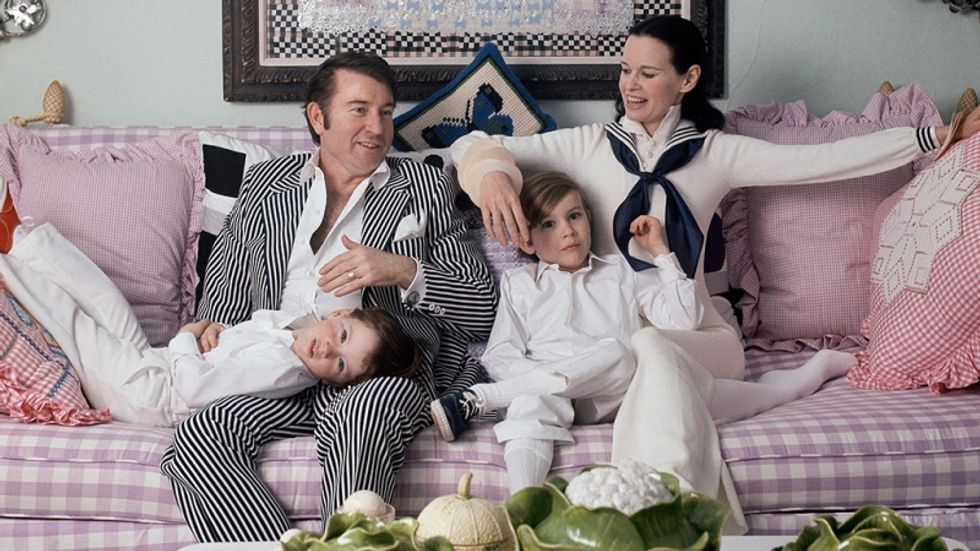
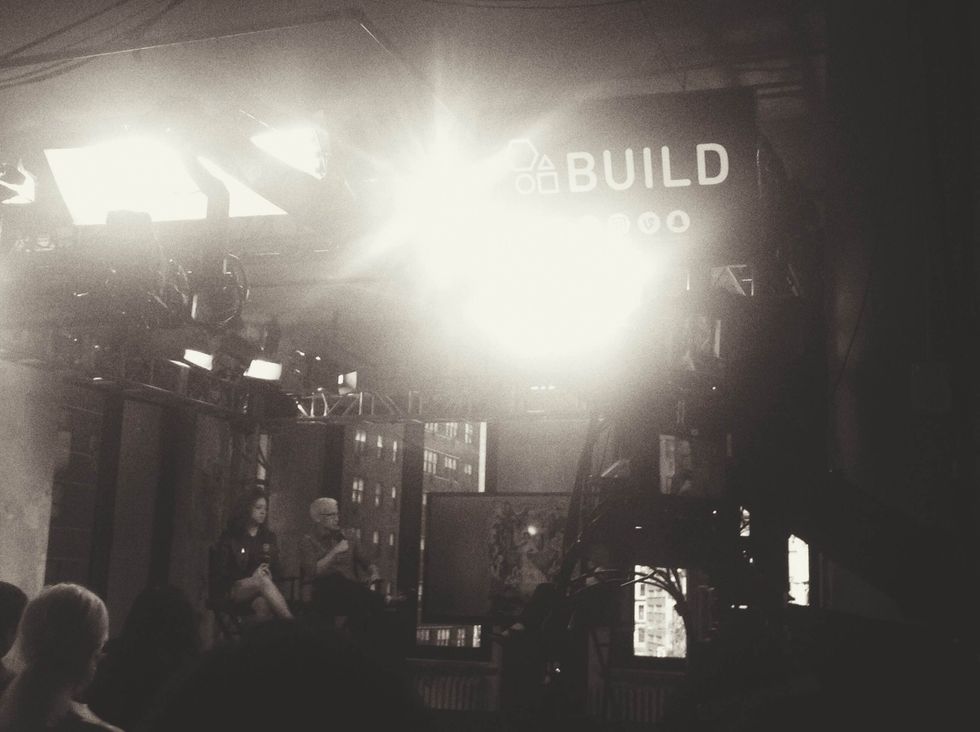

 Photo by
Photo by  Photo by
Photo by  Photo by
Photo by  Photo by
Photo by 


